I complain too much. I don’t want to be that person, and I am working on it, but I still complain too much. If we are lucky enough to develop an ability to recognize much of what is wrong with our world and its many broken people and systems, we must also remain true to what we may know, and understand that knowledge without action is insufficient. However, while honoring the truth is paramount, we also need to learn how to share that information in the most effective ways possible that minimize both our anger, and the temptation to complain. It is a fine line, and one that I have yet to master, as I continue to be a work in progress. Thankfully, this is an area where people like Erin Fernandes shine. Even with this post, I was going to start with the many aspects of our world that are wrong, rather than with the many parts that are right, and inspiring, like Erin Fernandes. Have you heard of Erin, aka “That Vegan Disabled Gal”? Erin started her Facebook group “That Vegan Disable Gal”, at the beginning of the pandemic in order to raise awareness about the power of veganism, as well as to give people with disabilities and others the chance to meet and interact, and feel less lonely. Members are encouraged to share their personal stories via the public forum like Erin, or through a private chat channel with Erin herself. Either way, “That Vegan Disabled Gal” is a wonderful Facebook group that has thousands of members, and continues to grow each day.
“Don’t be disabled in spirit as well as physically…It is a waste of time to be angry about my disability. One has to get on with life and I haven’t done badly. People won’t have time for you if you are always angry or complaining.” — Stephen Hawking (theoretical physicist, cosmologist, mathematics professor, and author)
Due in part to an eating disorder that started when she was a child, Erin suffered a simultaneous stroke and heart attack in 2010 that left her in a coma for two weeks, and unable to move, see, or speak. After a yearlong stay in the hospital, and being subjected to health harming hospital food, including meatloaf (bleh), Erin started to identify as a vegetarian in order to have a “built in excuse” to not have to eat as much of the toxic hospital fare. Despite these efforts, Erin knew that she might be dying, so she readily accepted the unhealthy food at times as well. Over the next couple of years, Erin slowly regained some of her vision and mobility, only to suffer a second stroke in 2015, which wiped out any progress that she had made. Knowing that her risk of a third stroke was increasing, Erin watched a few food documentaries with her boyfriend Jamie, and they both went vegan overnight.
“There are two kinds of cardiologists: vegans, and those who haven’t read the data.” – Dr. Kim Williams (cardiologist, and former president of the American College of Cardiology)
Interestingly, and unsurprisingly, I could not find one popular disabilities related website that talked about nutrition, let alone plant-based nutrition. These “health and wellness” organizations are doing a disservice to people who go to their sites for help and advice. I am not an expert, but I know that being bedridden or in a wheelchair impedes blood flow, and for a variety of reasons, significantly increases the risk of developing various diseases, as well as depression, and other stress related disorders. These disability related organizations should be shouting from their rooftops, as well as from their websites about the importance and power of plant-based nutrition, not only for people with disabilities, but for everyone.
John Robbins recently asked Dr. Dean Ornish about his new book “Undo It!”, and the Ornish program, which includes a low fat whole food plant-based diet, exercise (moving more), stressing less, and loving more (deepening human connections). Dr. Ornish has shown that a low fat, whole food plant-based diet is the only diet that has been proven to reverse heart disease, type 2 diabetes, and early stage prostate cancer.
Here is an excerpt from their interview which was a part of the superb 2022 Food Revolution Summit:
John Robbins: “How did you come to think that so many different chronic diseases might actually respond so powerfully to the same program, and to the same diet?”
Dr. Dean Ornish: “I was trained, like all doctors, to view all these conditions as being fundamentally different diseases, different diagnoses, with different treatments. And yet, the same lifestyle changes affected all of them. And I thought, “Well, maybe it’s because they’re not so different.” You know, that they’re really the same disease, they have more in common than different, manifesting and masquerading in all these different forms. Because they all share the same underlying biological mechanisms: chronic inflammation, oxidative stress, changes in the microbiome and immune function and telomeres and gene expression and angiogenesis and ptosis, etc. And each one of these mechanisms, in turn, is directly influenced by what we eat, how we respond to stress, how much exercise we get, and how much love and support we have. And so then it radically simplifies what we advise people to do. The book (Undo It!), begins with one of my favorite quotes which is from Albert Einstein. It says, “If you can’t explain it simply, you don’t understand it well enough.” So we tried to reduce it to its essence, you know, eat well, move more, stress less, love more. It’s not like you have one diet for, as you well know, for heart disease, a different one for type 2 diabetes, and so on. Because it’s the same condition just manifesting in different forms. That’s why you’ll often find the same person has heart disease and type 2 diabetes and high blood pressure, high cholesterol, overweight, etc. Because they’re all just the same cause, manifesting in all these different forms. So that radically simplifies it.”
“People are fed by the food industry, which pays no attention to health, and are treated by the health industry, which pays no attention to food.” – Wendell Berry
Lifestyle Medicine Drs. Dean and Ayesha Sherzai shared these eye opening stroke statistics in a recent episode of The Brain Health Revolution Podcast:
– More than 80% of strokes are preventable (with a plant-based diet, exercise, less stress, and more social activity & love)
– In the US, stroke is the 5th leading cause of death
– 85% of all strokes are Ischemic (deficient supply of blood)
– Over 17.8% of Americans over the age of 45 years old have experienced stroke symptoms
– As many as 30% of Americans could suffer from silent stroke symptoms
– The amount of disability that strokes bring far exceeds any other disease (a lot of stroke cases are left with disabilities for the rest of their lives)
– Close to 750,000 strokes occur in the United States every single year (doesn’t include silent strokes)
– The recurrence of strokes is about 20% within 5 years (if lifestyle habits remain unchanged)
– Over the past 30 years, both stroke incidence and mortality have decreased due to public health measures, including the identification of stroke symptoms (e.g., Act FAST acronym, where F is for face, which means if you see a drooping of the face, A is for arms, if one of the arms is dropping, S is for speech, if you hear slurring of the speech, or if a person says something that really doesn’t make sense, and T is for the Time it takes to call 911 (go to the emergency room ASAP (within 60 minutes to minimize long term damage). *A strange gait, and dizziness are also symptoms.
Best ways to avoid a stroke, and Alzheimer’s disease (As per Team Sherzai):
– Eat a whole food plant-based diet (significantly decrease blood pressure and cholesterol levels, while dramatically lowering the risk of developing chronic disease)
– Exercise (walking may be more beneficial than running, resistance training is important as well)
– Unwind (stress less)
– Sleep (restorative sleep, at least 7-8 hours of deep sleep per day)
– Cognitive and Social Activity (you won’t find brain vitality in contrived games, but rather in complex, real life, purpose-driven activities such as learning a musical instrument, learning a new language, leading a project, volunteering, or even things like playing cards and games with friends)
Click here for the episode, and to learn more about The Silent Epidemic of Stroke from Drs. Dean & Ayesha Sherzai.
“Keep your face to the Sunshine and you will not see the Shadows.” — Helen Keller
One of the things that I love about Erin Fernandes is her ability to somehow find the balance between being honest, and authentic, while also remaining hopeful, positive, and at times very funny. According to Erin, “My goals are to promote a vegan lifestyle and to share education, awareness, and compassion for animals, disabilities, and eating disorders. I truly believe my stroke saved my life; it was the impetus for me to stop abusing my own body and stop supporting products that harm animals.”
Here are Erin’s responses to a list of questions that I sent to her a few weeks ago:
It seems as though you are dealing with so many different daily challenges that many of us take for granted. How are you feeling, and how is your health? What are the prospects for the continued improvement of your health and physical abilities?
Erin Fernandes (EF): My health is good and I’m feeling good mentally. I’m in a good place. Slow and steady. I’m at the point of realizing I will never be able to walk like I used to but I can improve my coordination, motor skills, and physical strength. My optical nerve was damaged and will not improve. I can see but I’m legally blind.
I am a little confused. Did you start “That Vegan Disabled Gal” or is it a multi-member group that includes yourself? I noticed that some of your posts are from “That Vegan Disabled Gal” and others are from Erin Fernandes. You have had a lot of success in growing your following. How does it feel to entertain and inspire thousands of other people on social media?
EF: Yes I started the group years ago. I also have a Facebook page by the same name. I will sometimes post there but mostly post from my account or the group. I use the page primarily as a gateway for people who have yet to join the group. It feels good to reach people through social media and I enjoy being able to share veganism as well as issues and challenges people with disabilities face. I like that it is a positive group and shares information as well as being an outlet for people to have some fun on Facebook. The other aspect people don’t see is how many people reach out to me privately with struggles they are experiencing. It’s a good thing for people to not feel alone when they are struggling. I’m not a counselor but I try to lend an ear and be supportive of my members in that way.
Erin, why do you love animals? What does a vegan diet and lifestyle mean to your health, and happiness? What would you say to people who admire what you do, but claim that they will never give up their meat, dairy, and eggs?
EF: I love animals because they are so innocent and before my stroke I was a caretaker so that aspect of my personality translates to animals in that way. I feel we all have one life so every creature should have the opportunity to live their best one. A vegan diet has helped me deal with a long-standing eating disorder and now I eat more and more regularly as well. I like knowing that my choices help animals and that makes me happy. I deal with this a lot but never say never. I don’t harass them but hope they learn from being in the group. To have a part in helping people make compassionate choices and really think about how their decisions impact the lives of animals, people and the planet is something I’m happy to do in my own capacity.
Although most people are good, why do so many people choose not to care about animals in animal factories, and where the food on their plate originates?
EF: I think it comes down to education on the subject. Advertising and traditions play huge roles. Eating an animal is eating someone not something but that is not what we are taught. It can be hard to break that cycle.
You had a self described “Buddha Belly”, and you were self conscious of your weight when you were only 8 years old due to pressure from your Mom (and her comments to a friend), and by also having two siblings who were “string bean” thin. What kind of love and support was missing when you were 8 years old? What needed to be different in order for you to thrive as a child? What advice would you give to the many parents like your Mom regarding their behavior, and how it can cause irreparable damage to a developing child? I am sure that your Mom had great qualities too. How complicated was your relationship with your Mom? And what can teachers or other adults do to help children who they suspect may have an eating disorder, and may be suffering from depression or other health issues?
EF: I guess I felt my mom wanted me to be perfect and when she put me on a diet (deal a meal) it sent the message I was fat and needed to be fixed. When I lost weight they rejoiced…that started my eating disorder. The expectations were just too much. I feel it would have been better to explain the health implications and have more family participation (developing healthy diet and exercise habits) in lieu of singling me out and standing by while my siblings made fun of me. As far as the complications go…I loved my mother but she contributed to my situation and really screwing up my life. My childhood to late 20s was governed by my eating disorder and that led to my stroke. I always had to hide my disorder so I felt I could never have a genuine and fully honest relationship with anyone. It’s tricky when teachers get involved. They could always try to talk to the parents or guidance counselor but I never trusted anyone so I wouldn’t have been open with them anyhow.
Erin, you have suffered two strokes, and a heart attack. What caused your first stroke and heart attack in 2010? How about your second stroke in 2015? When did you become vegan, and how important was a plant based diet in your recovery?
How has a vegan lifestyle, and a plant-based diet helped you physically and emotionally?
EF: The eating disorder was thought to be the culprit. I had extremely low potassium levels and the same could be said for other vitamin and mineral levels. Years of deficiency and abuse took their toll. After a first stroke you are more likely to have another. I regained my sight and could zombie walk (I looked like what one would associate with a zombie’s gait from the older movies). The second stroke really messed up my vision, my motor skills, and took my ability to walk. I mean I can walk now with a rolling walker but have to have someone close by because I frequently lose myself in space (vision) and lose my balance and fall.
Where do you draw your strength? What gives you a sense of purpose?
EF: Having the group gives me a sense of purpose. I can help in my own way. The daily grind is where I draw strength and find purpose as well. As I said earlier, we all have one life…have to try and live it the best we can. Complaining and being down or unmotivated does no good.
One of the many reasons that I really enjoy your posts is your sense of humor. How important is laughter in your life? What do you do for fun?
EF: Everyone likes to laugh. My situation really sucks but I try to find humor in it. What else can you do? To be honest a lot of funny and quirky stuff comes with having a disability like mine. Sharing it helps me cope and I hope it does the same for others. That is not to say I don’t have bad days or bad moments on good days. For fun I watch a lot of TV, movies, music, and exercise. What I do now for fun is very different from what I used to do for fun.
We all know that love is huge as well. How important has love been in your life?
EF: For me it is extremely important. I can be myself around my partner who is also my caretaker. He is also vegan and knows about my disorder. He cooks around that and keeps me eating healthy and taking my vitamins. Life is hard at times but we make it work.
How important is it to be grateful?
EF: I think it’s important to appreciate what you have…nothing is guaranteed. It’s important to acknowledge that things could be worse.
What are your passions? And what will you be doing in 5 years? What excites you, and are there any upcoming projects that you would like to mention?
EF: Besides all things vegan, I like to exercise and believe it or not food has become a passion. I also love my pups. In 5 years it will probably be very much the same. Eventually we are planning on selling the house and getting a condo with a pool. Being in the pool is something I still enjoy. If you follow my group, you know. I hope to have all my teeth back by then. LOL.
Who inspires you? Why?
EF: Earthling Ed is a big inspiration. He is pragmatic and logical but always keeps cool when talking to meat eaters. I try to model my group around that philosophy which is why meat eaters are welcome. We also encourage kindness when people are searching…we were all there once.
Are there any books that you would like to recommend?
EF: This one I cannot really answer. Since my stroke I cannot read. I am legally blind. Although I can see, reading is pretty much impossible with my vision. I do listen to audio books but mostly for entertainment…nothing prolific 🙂
Favorite vegan meal? Recipe?
EF: Tofu stir fry with a variety mushrooms… I love mushrooms. As far as recipes go, I can’t cook so I leave that to my boyfriend.
How old are you? What words of advice would you give to your 10 year old self? How about your 20 year old self?
EF: I just turned 43! It would be the same for both my ten year old and 20 year old self…Question everything. Advertising, government, etc., all push dairy and meat as normal when it is a savage practice to consume these “products”. I think if I went vegan as a child I could have avoided my eating disorder and possibly avoided my stroke(s).
Erin, what have you learned from your life and vegan journey so far? What do you hope to teach others?
EF: No matter who you are and what you do and have done, we can all be better people. I think that type of thing comes with age and life experience. When you are younger you try to fit in. Life can really be about conformity in one’s younger years so it’s important to teach kids compassion and respect for all living sentient beings. It’s also important to learn and understand how our actions impact the environment. I guess the general message would be compassion and responsibility for our own actions. I think that is a good message and a solid starting point for people…Just wanted to add that when I was a vegetarian I was not in it for the animals. It was to satisfy my eating disorder. It wasn’t it much later in life that I personally made the connection so to all vegans…be kind and patient. What you say today could have an impact down the line.
Thank you Erin for sharing your experiences, humor, and wisdom. I know that I am not alone in expressing both my admiration, and appreciation for you, and all that you do! 🙂
Sources:
Click here for Erin’s Facebook page.
Click here to learn more about Erin’s Story.
Click here to learn more from Team Sherzai, and The Blue Zones.
Click here to learn more from Team Sherzai (Drs. Dean and Ayesha Sherzai).
Click here to learn more about the dangers of pink ribbon messaging, and the so-called “health organizations”.
Click here to learn more from the Disabilities Rights Education & Defense Fund.
Click here to learn more about how hospitals refuse to acknowledge the power of plant-based nutrition.
Click here for a link to the 2022 Food Revolution Network.
Click here to learn more about Undo It!, and the power of plant-based nutrition from Dr. Dean Ornish.
Click here to learn more about the health related conditions for people with disabilities.

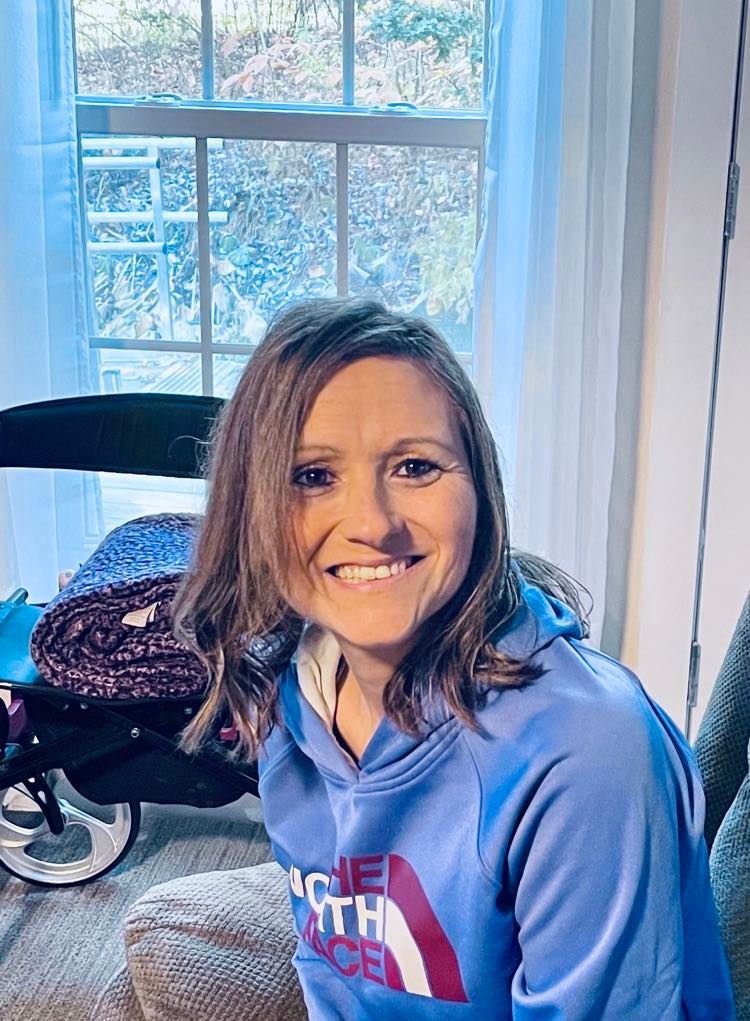
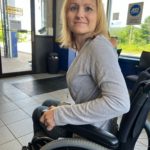
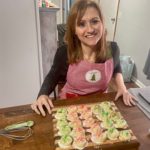
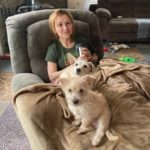
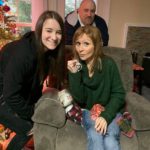
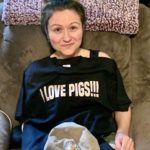
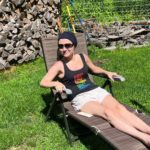
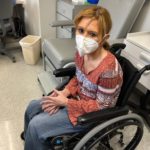
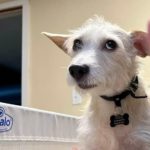
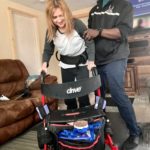
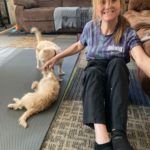
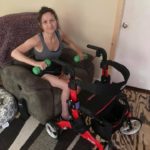

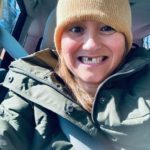
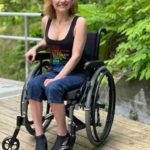
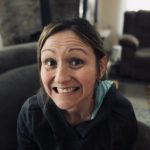
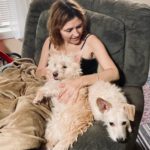

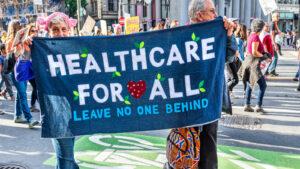
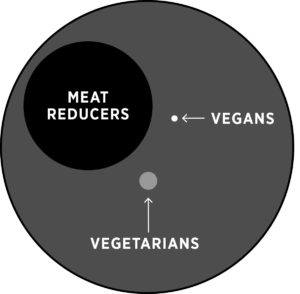
Am interested to work together to promote veganism awareness and animal rights protection n Sondu, Kenya.